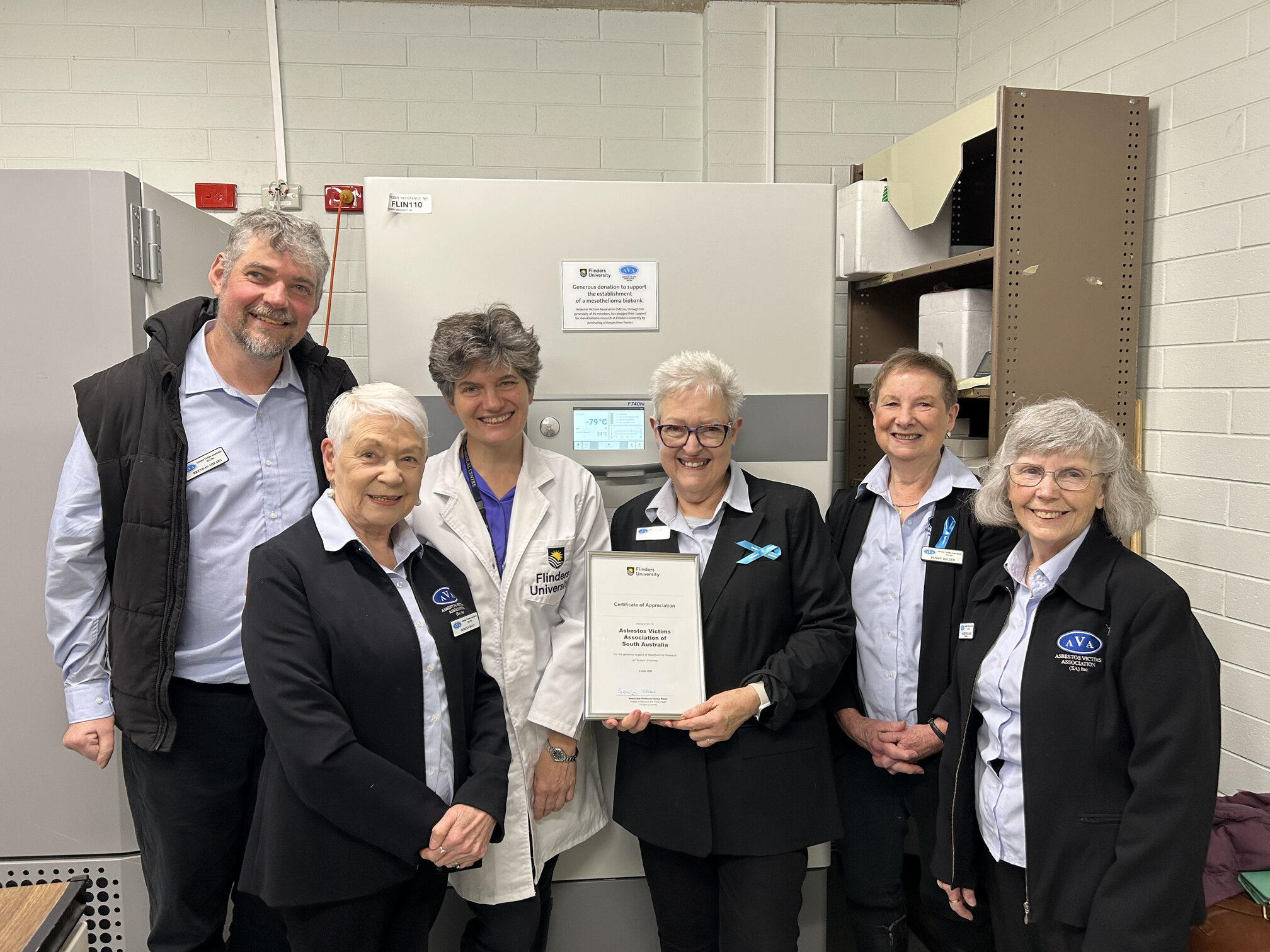
Scientific breakthroughs into treatments for lung cancer and asbestos-related diseases including mesothelioma, will be made possible by a state-of-the-art freezer thanks to a donation from the Asbestos Victims Association (SA).
To drive world leading research on the currently incurable lung cancer mesothelioma, Flinders University's Associate Professor Sonja Klebe has developed a 'tumour in a dish' model that uses tumour cells to seek out new treatments for asbestos-related diseases.

This unique model enables the researchers to test different treatments in the laboratory and compare their results with how patients respond in real clinical settings. But to accomplish these ambitious goals, multiple cell samples from the same patient need to be stored at exceptionally cold temperatures.
The researchers now have a new state-of-the-art freezer that allows them to collect and store valuable tumour cells at minus 80 degrees thanks to a generous $30,000 community donation. This capability is invaluable for the research process because normal freezers operate at only minus 20 degrees.
The Asbestos Victims Association fundraised the donation with their members, who know better than most about the real life consequences of exposure because they offer support for South Australians living with asbestos related diseases.

The freezer will be used by the laboratory team led by Flinders University researcher and Associate Professor in Pathology, Sonja Klebe who says each case of mesothelioma has its own unique genetic challenges, and it's difficult to predict how a patient will respond to treatment.
"Our unique model tests potential treatments in vitro, correlating the findings with actual clinical responses, which enables us to mimic tumour progression and resistance development by closely mimicking the host tumour and its environment, including immune cells and stroma," says Professor Klebe.
"It's important we undertake this testing effectively because while a new type of immunotherapy can help improve symptoms for some patients, it can also cause significant side effects for others. So, this donation of high quality freezing equipment is an invaluable asset and will ensure we can continue to develop therapies that can transform our approach to effective treatment."
"We're already using this freezer to store cells that make up our tumour-in-a dish model,, so they're ready to use in the next phase of trials."
Asbestos Victims Association (SA) Vice President Lesley Shears says AVA is delighted to be able to support Associate Professor Klebe in the research into mesothelioma, a devastating illness caused by exposure to asbestos.
"Asbestos related disease is the cause of more than 4000 deaths a year in Australia. The latency period for mesothelioma is up to 40 years and the annual rate of illness has not yet lessened."
"Asbestos Victims Association's aim is to promote awareness of asbestos and asbestos related disease as well as to support people affected. Our hope is that this research will enable earlier diagnosis and better treatment for patients in the future."
The donation to Flinders University also honours the life and contribution of Emeritus Professor Doug Henderson AO, an internationally recognised pathologist renowned for his work into the prevention and treatment of asbestos-related diseases.






